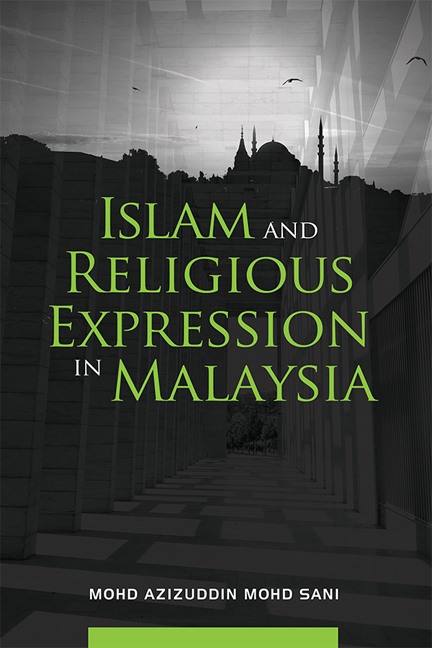Book contents
- Frontmatter
- Cantents
- Foreword
- Preface
- Acknowledgements
- List of Acronyms and Abbreviations
- 1 Freedom of Expression
- 2 Islamization Policy and Islamic Bureaucracy
- 3 Inter-Religious Expression
- 4 Intra-Religious Expression
- 5 Extreme Expression and Radicalization
- 6 New Malaysia under Pakatan Harapan
- 7 Conclusion: Seeking for a Genuine Freedom of Religious Expression
- Bibliography
- Index
- About the Author
1 - Freedom of Expression
Published online by Cambridge University Press: 10 November 2020
- Frontmatter
- Cantents
- Foreword
- Preface
- Acknowledgements
- List of Acronyms and Abbreviations
- 1 Freedom of Expression
- 2 Islamization Policy and Islamic Bureaucracy
- 3 Inter-Religious Expression
- 4 Intra-Religious Expression
- 5 Extreme Expression and Radicalization
- 6 New Malaysia under Pakatan Harapan
- 7 Conclusion: Seeking for a Genuine Freedom of Religious Expression
- Bibliography
- Index
- About the Author
Summary
Introduction
There is an argument that the right to free expression can be potentially used to stir national security. Former Prime Minister of Malaysia, Najib Tun Razak admitted that race and religious issues are sensitive in Malaysia, and stressed that “(We need) political management (which) includes race relations. If we can refrain from uttering words or committing acts which can offend other races, then temperature-raising incidents can be avoided” (The Star 2010, p. 4). In objection, Anwar Ibrahim, the main opposition leader back then, implied that the Barisan Nasional (BN) government, led by the United Malays National Organisation (UMNO) as the most dominant political party in the coalition, was behind the tensions. He argued that “This is the last hope—to incite racial and religious sentiments to cling to power … immediately since the disastrous defeat in the March 2008 election, they have been fanning this” (Mydans 2010, p. 4). It seems ironic when Malaysia has Article 10 of the Federal Constitution that protects people's right to free expression and many laws such as the Sedition Act (SA) and Penal Code against religious and racial hatred but hate speech is still being exploited to further the political agenda and interests of certain political groups and parties. This raises a question: can we curb free expression for national security in Malaysia?
One more crucial issue, which needs to be addressed, is on the restrictive laws which are essential for political stability, racial harmony and economic prosperity. Are these laws merely used as tools for the government to cling to power and restrict any political contestation and people's mobilization against it? So far, there have been mixed responses on this issue and the debate is worldwide. The government argues in favour of the restrictive laws in sustaining racial and religious harmony in Malaysia. This chapter will argue about the processes in implementing freedom of expression in Malaysia.
Freedom of Expression in Malaysia
According to Andrew Tan (2004), national security in Malaysia has several objectives, in particular:
1. Preserving the Federal Constitution, including the position of the Malay rulers, Islam as the religion of the Federation, the special rights of the Malays in maintaining Malay political supremacy, and the legitimate rights of the other races.
2. Protecting national unity and racial harmony in realization that any internal ethnic conflict would be detrimental.
- Type
- Chapter
- Information
- Islam and Religious Expression in Malaysia , pp. 1 - 24Publisher: ISEAS–Yusof Ishak InstitutePrint publication year: 2020

